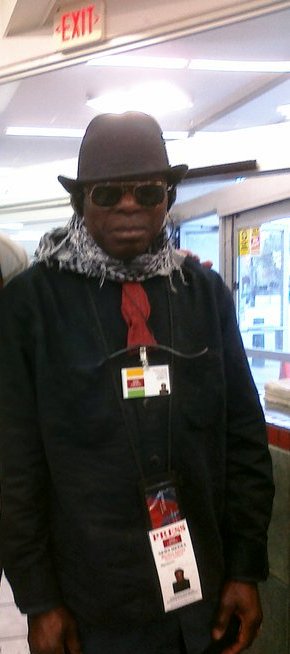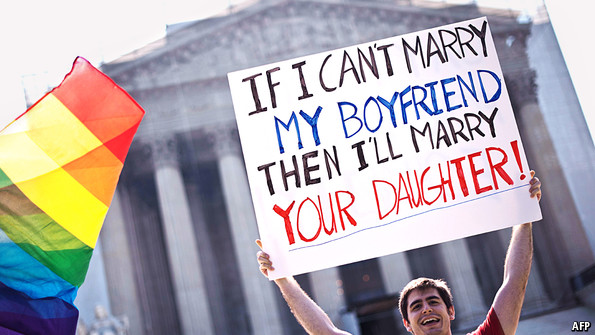
CAIRO -- More than 22 million Egyptians have signed a petition calling for the country's Islamist president to
step
down, the youth group leading the signature campaign said Saturday on
the eve of mass protests aimed at forcing Mohammed Morsi from office.
The
planned demonstrations, which could plunge Egypt once again into a
dangerous round of civil unrest, reflect the growing polarization of the
nation since Morsi took
power, with the president and his Islamist allies in one camp and seculars, liberals, moderate Muslims and Christians on the other.
Already,
clashes across a string of cities north of Cairo over the past week
have left at least seven people dead, including an American, and
hundreds injured, and there are deep-rooted fears in the country that
Sunday's protests will turn violent and quickly spiral out of control.
On
Saturday, an Associated Press reporter saw Morsi supporters at a Cairo
sit-in doing military-style fitness drills, with some wearing homemade
body armor
and construction helmets and carrying sticks. They said they had no
intention of attacking opposition protesters, and would only act in
self-defense or to protect the presidential palace.
The
Tamarod, or Rebel, youth movement says its petition is evidence of the
widespread dissatisfaction with Morsi's administration, and has used the
signature drive as the focal point of its call for millions of people
to take to the streets Sunday to demand the president's ouster.
Mahmoud
Badr, a Tamarod leader, told reporters Saturday a total of 22,134,460
Egyptians have signed the petition. He did not say whether there had
been an independent audit of the signatures.
Morsi's
supporters, who have long doubted the validity and authenticity of the
collected signatures, expressed skepticism about the final count.
"How
do we trust the petitions?" asked Brotherhood member Ahmed Seif Islam
Hassan al-Banna. "Who guarantees that those who signed were not paid to
sign?"
If authenticated, the collection of so
many signatures would deal a symbolic blow to Morsi's mandate and put in
stark terms the popular frustrations with an administration that
critics say has failed to effectively deal with the country's pressing
problems, including tenuous security, inflation, power cuts and high
unemployment.
Tamarod, which began its
campaign with the goal of collecting more signatures than the 13 million
votes Morsi garnered in his 2012 election win, announced its final
tally the day before protests that organizers vow will bring millions
into the streets to push the president from power.
Morsi, meanwhile, sought to project a business-as-usual image Saturday, meeting with the defense and interior
ministers to review preparations to protect the protesters and vital state facilities during Sunday's demonstrations.
Egypt
has been roiled by political unrest in the two years since the uprising
that ousted autocrat Hosni Mubarak, but the round of protests set to
kick off Sunday promises to be the largest and holds the potential to be
the bloodiest yet.
In the past week alone, at
least seven people have been killed in clashes between the president's
supporters and opponents in cities in the
Nile Delta, while on Friday protesters ransacked and torched as least five Brotherhood offices across the country.
Adding
to the tension, eight lawmakers from the country's interim legislature
announced their resignation Saturday to protest Morsi's policies. The
270-seat chamber was elected early last year by less than 10 percent of
Egypt's eligible voters, and is dominated by Islamists who support
Morsi.
With a sense of doom hanging over the
country, Defense Minister Gen. Abdel-Fattah el-Sissi last Sunday gave
the president and his opponents a week to reach a compromise and warned
that the military would intervene to prevent the nation from entering a
"dark tunnel." It was the strongest expression of the military's
discontent with conditions in the nation since Morsi took office a year
ago.
In South Africa, President Barack Obama
said the U.S. supports freedom of speech in Egypt and the right of
protesters to peacefully assemble, and called on called on both sides in
Egypt to avoid violence.
"We would urge all
parties to make sure they're not engaging in violence (and) police and
military are showing appropriate restraint," he said.
The
opposition, feeling that Morsi may be on the ropes and frustrated by
past offers of dialogue that proved to be mostly symbolic, has shown no
inclination to compromise, and Morsi offered no concessions to his
opponents when he addressed the nation for 2 1/2 hours on Wednesday.
The
focus of Sunday's protests is Morsi's Ittihadiya palace in Cairo. As a
precaution, the president and his family are reported to have moved into
the Cairo headquarters of the Republican Guard, the branch of the army
tasked with protecting the president and presidential palaces.
As
the country waits to see what transpires Sunday, thousands of
supporters and opponents of the embattled president held rival sit-ins
Saturday in separate parts of the capital.
With
expectations of violence running high, the military has dispatched
troops backed by armored personnel carriers to reinforce military bases
on the outskirts of cities expected to be flashpoints.
In
Cairo, the additional forces were deployed to military facilities in
the suburbs and outlying districts. Army troops are also moving to
reinforce police guarding the city's prisons to prevent a repeat of the
nearly half dozen jail breaks during the chaos of the 2011 uprising.
The
opposition is demanding Morsi's ouster, saying he has lost his
legitimacy through a series of missteps and authoritarian policies. They
say early presidential elections should be held within six months of
his ouster.
Hard-line Islamists loyal to Morsi
have repeatedly vowed to "smash" the protesters, arguing that they were
a front for loyalists of Hosni Mubarak, the autocrat ousted in Egypt's
2011 revolt, determined to undermine Morsi's rule. They also say that
Morsi is a freely elected president who must serve out his four-year
term before he can be replaced in an election.
Many
Egyptians fear the new round of unrest could trigger a collapse in law
and order similar to the one that occurred during the 2011 revolt.
Already, residents in some of the residential compounds and
neighborhoods to the west of the city are reporting gunmen showing up to
demand protection money or risk being robbed.
The
police, who have yet to fully take back the streets after they
disappeared in unclear circumstances in 2011, have stepped up patrols on
the outskirts of the city, ostensibly to prevent weapons and ammunition
from coming into the city to be used in the case of an outbreak of
violence. The army is advertising hotlines for civilians to call if they
run into trouble.
In the latest reminder of
the near lawlessness that has plagued the Sinai Peninsula bordering Gaza
and Israel since the 2011 revolt, a senior security official officer
was assassinated Saturday in the coastal city of el-Arish as he arrived
home from work. Police Brig. Mohammed Tolbah was instantly killed and
his driver seriously injured.
---










